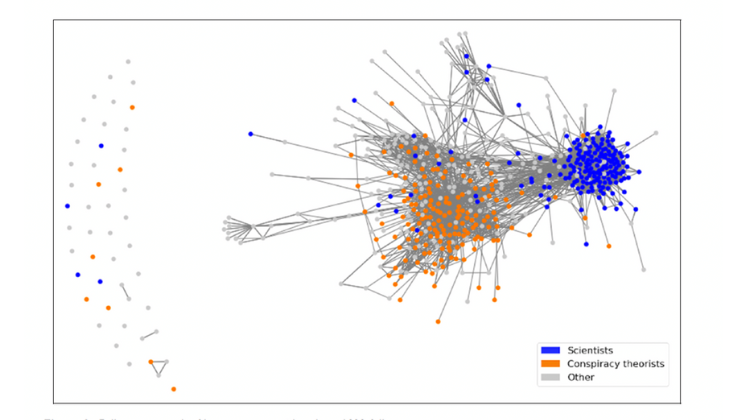 Open access debates have long been fostered by science disciplines but to make open access work truly powerful, we must make the same push for quality research presented in an accessible manner, writes Brant Moscovitch.
Open access debates have long been fostered by science disciplines but to make open access work truly powerful, we must make the same push for quality research presented in an accessible manner, writes Brant Moscovitch.
The movement to make academic literature freely available, dubbed the Academic Spring, is gaining momentum, having recently obtained the support of both the Department of Education and Harvard University. Advocates have built a solid case, citing the burden of subscription costs borne by universities, as well as the limitations on sharing information that characterises the existing system. As proponents have rightly argued, freeing academic literature will increase readership, by some estimates up to 250%.
With the advent of new technology that facilitates scanning articles, thereby helping academics learn from one another’s research, free access might pay numerous dividends, including new discoveries that could exert an impact both within the academy and outside.
Interestingly, however, this debate has been confined to the sciences, with those in the humanities and social sciences having remained silent, Lucy Montgomery’s post in this blog being a notable exception. This is unfortunate, as the humanities and social sciences in particular have been forced to navigate stormy straits lately, often bearing the brunt of austerity budget cuts. Rather than ignoring the debate over publishing, those of us in these fields should embrace it is an opportunity to reevaluate how our disciplines are to flourish in the coming decades.
The Academic Spring’s shock troops tout the sharing of information between academics, and the ability to reach people beyond the ivory tower, as being two of the benefits offered by free access. Closer examination of what this would mean for the humanities and social sciences makes it evident that, in both cases, it is likely that free access to academic literature would have much less impact than in the sciences, as existing structural and conceptual problems would prevent these improvements from bearing fruit.
Firstly, facilitating sharing will do little to change what amounts to a bunker mentality that exists in academia. Departments continue to be segregated from each other, resulting in many researchers who avoid material in other fields either out of obstinacy or ignorance. One of the reasons I began studying history was my attraction to its breadth – all periods, regions and civilisations lie within its net. It is discomforting then when even the history of science and medicine departments are isolated from history departments, as is too often the case. One only needs to zoom out slightly and observe the difference in methodology and language employed by historians and political scientists, whose studies bare such close resemblance to one another, to see that this is representative of a larger problem. The general ignorance between historians, anthropologists, sociologists and so on, is limiting for all involved.
Secondly, free access to journals will not encourage a wider audience to read academic literature when so much of it continues to be dull and esoteric, even to experts. While scientific literature can often be so technical that it is highly difficult for laymen to understand, skilled academics in the humanities and social sciences can often present even academic literature in an intelligible and engaging manner. Yet from grad school on, little emphasis is placed on presenting quality research in a way that facilitates reading it. The popular historian Barbara Tuchman once said that not going to grad school saved her as a historian. “If I had taken a doctoral degree,” she quipped, “it would have stifled my writing capacity…” This is an exaggeration, but it serves to illustrate the complete lack of regard for writing style and presentation that does indeed produce researchers who both write in a poor and unclear manner and are oblivious to how problematic this is.
Ameliorating this situation requires opening new fronts in the Academic Spring. The issues preventing sharing and outreach in the humanities and social sciences are structural and conceptual, and so therefore must their solutions be. Only more institutional links between departments, and a greater willingness to explore research in other fields, will facilitate true sharing between departments. Tackling both this and the propensity for dull writing must begin in graduate school. It requires greater emphasis on developing editing skills and an appreciation that the impact of one’s research will only be heightened by making it easier (dare I say enjoyable?) for our audience to read and comprehend.
The time for change is ripe. The university is currently witnessing its greatest transition period since the 1960s. Like all times of upheaval, this offers us great opportunities that must be seized, as well as hazards that need avoiding. Most importantly, the humanities and social sciences must negotiate between the pursuit of knowledge and truth on the one hand and – without pandering – making research intelligible to others, both inside and out of academia; it must utilise new technology, such as podcasting and free online classes to reach out to students and the general public while preserving intimate seminars and tutorials which foster greater interaction and crucial critical thinking.
Universities must maintain their focus on rigorous research but also place much greater attention on teaching graduate students how to communicate their research, both written and orally, in a way that preserves quality but also increases accessibility.
Note: This article gives the views of the author(s), and not the position of the Impact of Social Sciences blog, nor of the London School of Economics.








5 Comments